
Understanding treatment resistance in ovarian cancer
Ovarian cancer is cancer of the ovaries or fallopian tubes. Symptoms include tummy pain, bloating, reduced appetite and needing to pee more often.
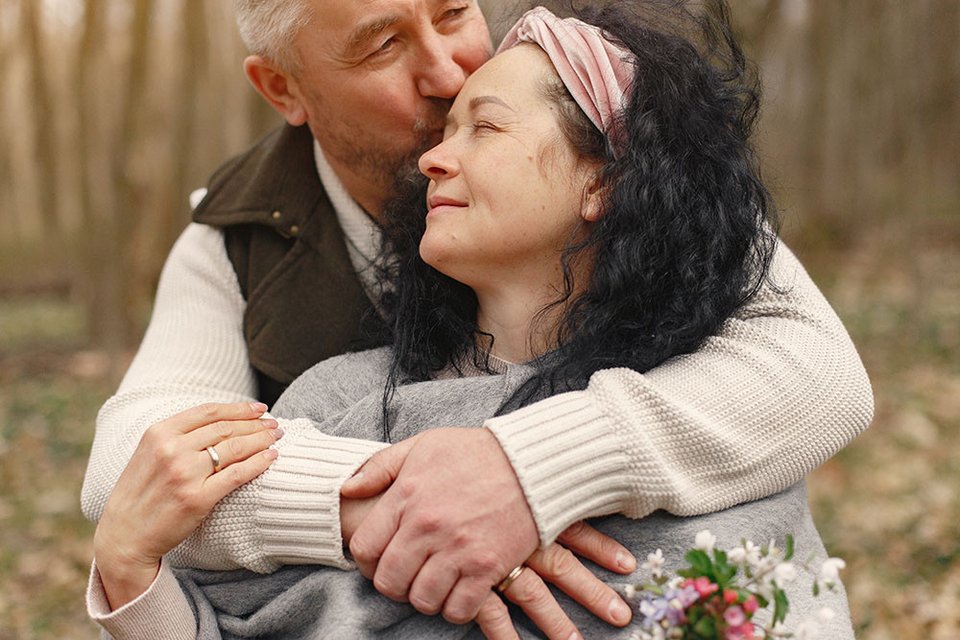
The fallopian tubes attach the womb to the ovaries. They collect the egg when it is released from the ovary and transport the egg to the womb.
Doctors now think that many ovarian cancers may start in the end of fallopian tubes where they attach to the ovary. Ovarian cancer happens when cells in the ovary or fallopian tube become abnormal. These cells can grow and divide uncontrollably.
These cells can fall off from the surface of the ovary or the lining of the fallopian tube and spread throughout the abdominal (tummy) cavity. The cells then attach to the lining of the abdominal cavity (called the peritoneum) or onto the outside of other organs, like the bowel. They can grow into further tumour deposits called metastases. In ovarian cancer, this spread can happen very early, even when there isn’t a visible mass on the ovary or tube. Eventually the abnormal cells can spread to other organs outside of the abdominal cavity.
Around 7,500 women get ovarian cancer in the UK each year. It is most common in women over 50, but younger women can still get it. Some rarer types of ovarian cancer are more common in younger women. Ovarian cancer can affect anyone who has fallopian tubes or ovaries, so some trans men and some non-binary people can also be affected.
The earlier ovarian cancer is diagnosed, the easier it is to treat, but unfortunately, we don’t yet have effective ways to screen for ovarian cancer.
We don’t yet understand the cause of ovarian cancer. The biggest risk factor for ovarian cancer is getting older and the risk rises steeply from the age of 45. It is most common in women and people who have been through the menopause.
You might also be more at risk of ovarian cancer if a close blood relative, like your mum or sister, has had ovarian cancer, or if you have a family history of breast cancer. This is because some ovarian cancers are caused by an inherited faulty gene – BRCA1 or BRCA2. If you are worried about this, speak to your GP as they can assess your risk and decide whether you would benefit from a referral to a specialist genetics testing service. Lynch Syndrome affects one in 278 people and causes some families to have high rates of some types of cancer, including bowel, womb, prostate, ovarian and stomach cancer.
Around 5-15% of ovarian cancers are caused by a genetic mutation. If you are found to have an inherited risk of ovarian cancer, you can be offered surgery to remove your tubes and ovaries to reduce your risk significantly. Surgery is offered if you do not hope to get pregnant in the future.
Other factors that can affect your risk of ovarian cancer include:
Some things can reduce your risk of ovarian cancer:
Symptoms of ovarian cancer are not always obvious, and some people may not notice them, or think they are symptoms of other conditions.
If you do notice symptoms of ovarian cancer, they’re most likely to include:
Other symptoms include:
If you have any of these symptoms, you should speak with your GP. These symptoms can be often caused by other benign conditions, such as irritable bowel syndrome (IBS), but it’s important to get checked out. This is especially important if you’re over the age of 45 or have been through the menopause.
It’s a good idea to keep a diary of your symptoms and take this when you visit your GP. Useful things to record include date/time of symptoms, if anything makes symptoms worse, when they started and how often they occur. You may want someone to go with you to your appointment for support.
A GP will first ask you questions about your symptoms. They may investigate further and:
Depending on the outcomes of their investigations, doctors may arrange an ultrasound scan of your tummy and pelvis. This may lead to a referral to a gynaecology cancer specialist. Sometimes your doctor will refer you straight to the specialist before the test results are back. The specialists may arrange for further tests like blood tests, scans or biopsy before they see you.
If they don’t refer you for investigation and you’re still concerned, it’s okay to ask them why and for more information.
If the tests are initially reassuring, but your symptoms persist or worsen over the next few weeks or months, go back to visit your GP again.
The treatments you receive will depend on the stage and type of ovarian cancer you have.
In some cases, when it is caught early, ovarian cancer can be completely treated. For others the treatment may help to control the disease for months or years before it comes back. All treatments are likely to trigger menopause however, if you have not yet been through the menopause.
Treatments include (often a combination of):
If you are diagnosed with ovarian cancer, your doctor will discuss treatment options with you. You will also be able to ask them any questions that you might have. You will also be assigned a cancer nurse specialist who will be your contact person and is there to support you through your treatment.
It is a good idea to discuss what your options are, and the benefits and risks of each, so that you can reach a decision that is best for you.
Many people with ovarian cancer will need to have their ovaries, fallopian tubes and the uterus (womb) removed during surgery. This means you won't be able to become pregnant naturally. There may be other ways to have children such as IVF, surrogacy or adoption.
Sometimes it’s possible to have treatment to remove just one ovary, which means you may still be able to get pregnant in the future.
Ask your doctors and nurses for information about your fertility options.
There are four stages of ovarian cancer. The stage depends on how big the cancer is and how far it has spread. Doctors decide the best treatment for you based on the stage of cancer and how quickly it’s likely to grow (grading).
You can read more about ovarian cancer and the treatments available on the NHS website.
If you are worried about ovarian cancer or have been recently diagnosed, you can get support. All these organisations offer information, help and advice:
You can also watch our webinar on gynaecological cancers. Dr Sarah Kitson, an expert in gynaecological cancers, discusses the most common symptoms of the five gynaecological cancers: cervical; ovarian; vulval; vaginal; and womb cancer. She also explains who may be most at risk and the impact a diagnosis can have.
Let's Talk Gynaecological Cancers
Watch our webinar with top experts answering common questions about the five gynaecological cancers, including ovarian cancer.As a women’s health charity, we fund research to save and change the lives of women, girls and babies.
Our research has identified that a simple blood test, which can be given by GPs, could help diagnose ovarian cancer faster and more accurately.

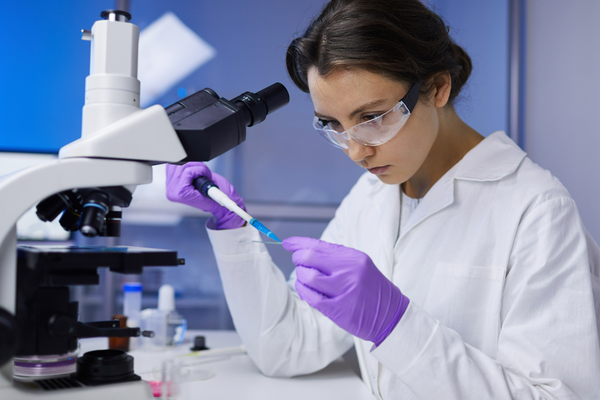
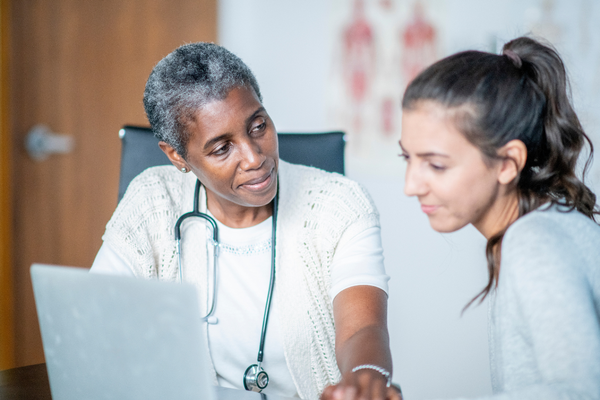

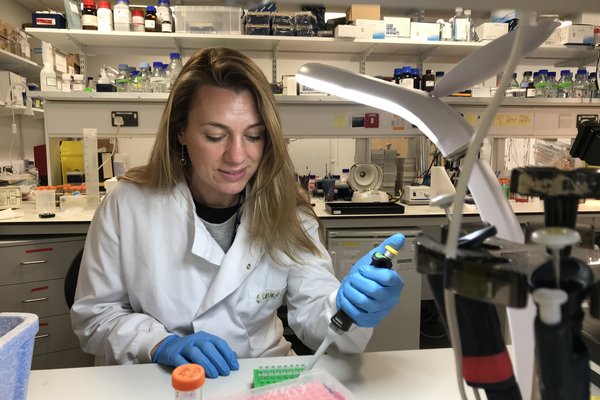
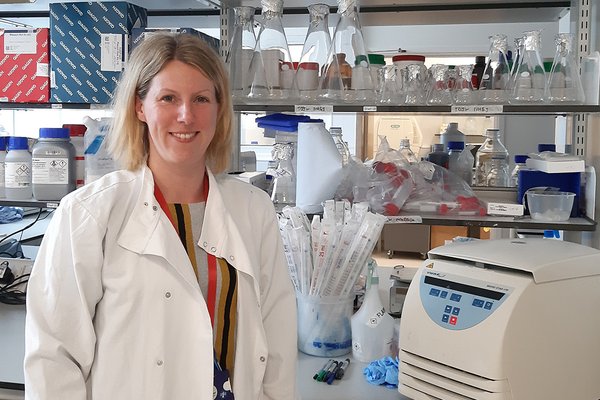

The vulva is the external part of the female genitals. Cancer in this area can cause a lump that may be sore or bleeding. There are 1,400 new cases in the UK every year.
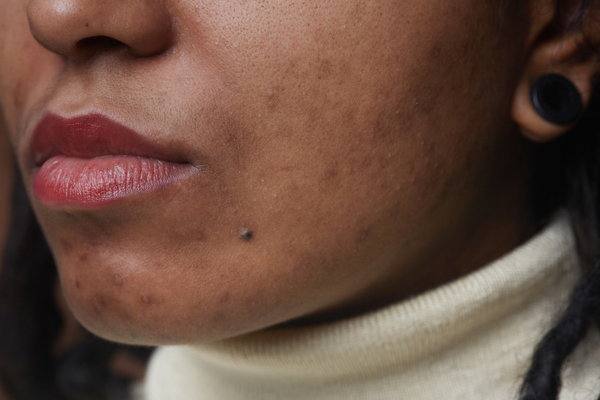
PCOS is a common condition that affects the ovaries. Symptoms include irregular periods, fertility problems, acne, unwanted hair growth and scalp hair loss. Treatments can help manage symptoms.

Most womb cancer starts in the lining of the uterus (womb). Around 9,700 women are diagnosed with womb cancer each year in the UK. The most common symptom is unusual bleeding from the vagina.